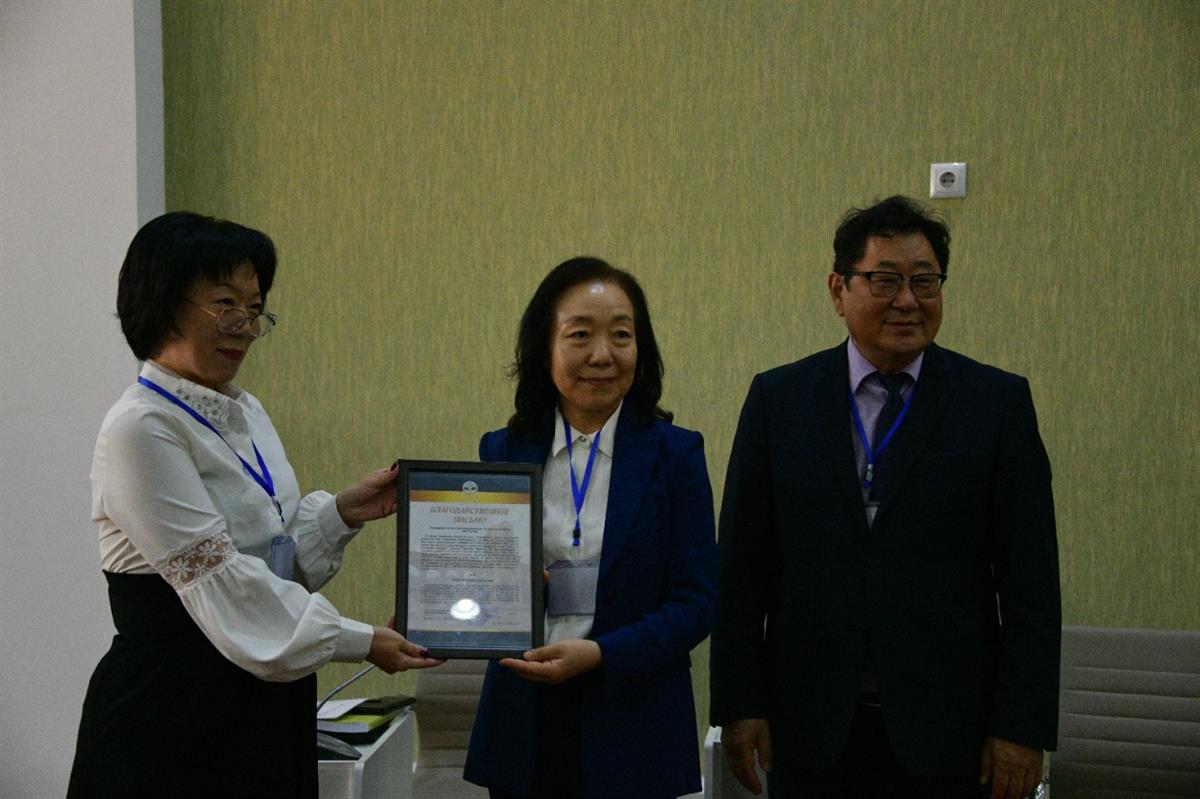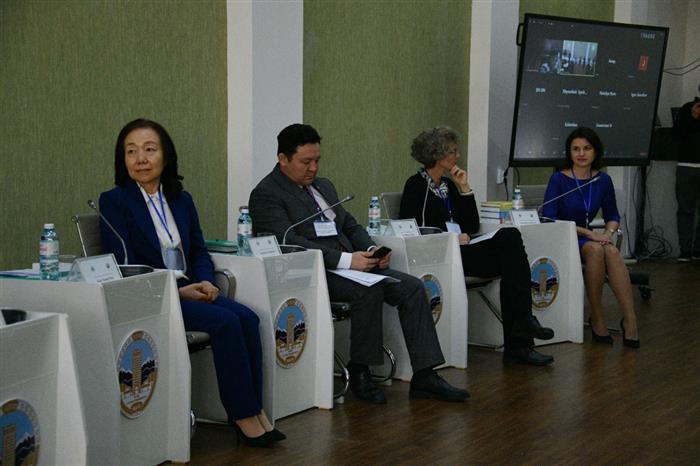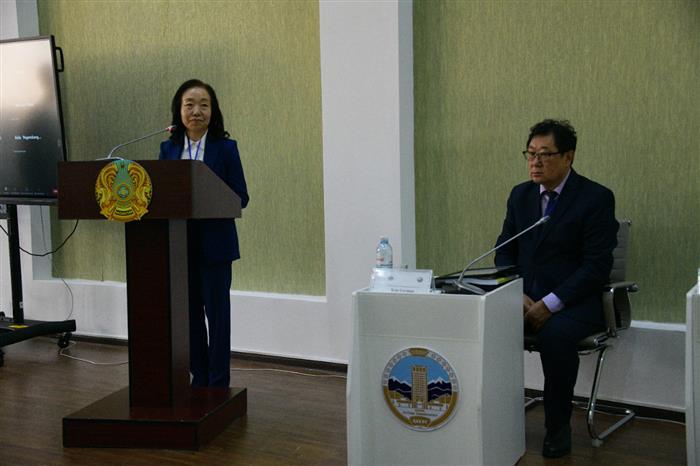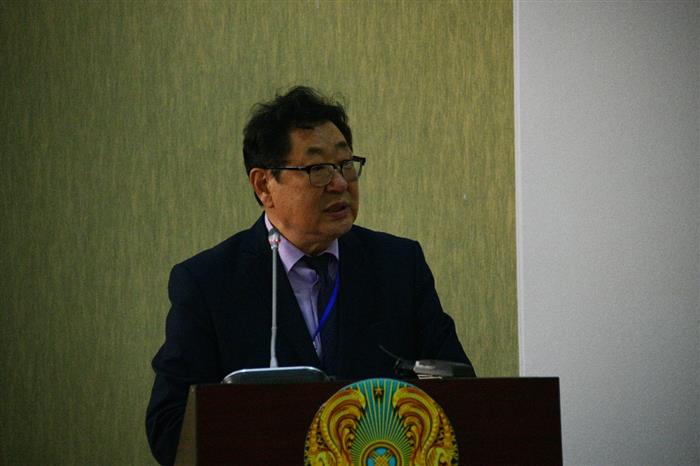Prospects for the development of diasporology
Views: 721

The Al-Farabi Library hosted an international scientific conference "Prospects for the development of diasporology in the era of globalization, transnationalism and digitalization", dedicated to the 85th anniversary of the Koreans of Kazakhstan and the 30th anniversary of diplomatic relations between the Republic of Kazakhstan and the Republic of Korea.
The following took part in its work: the leadership of KazNU. Al-Farabi, Vice-President of the Association of Koreans (Republic of Korea) Kim Yong Mi, Chairman of the Association of Koreans of Kazakhstan Yuri Shin, Director of the Institute of Asian Studies of the Kazakh National University, Professor German Kim, Professor of the National University of Uzbekistan. Mirzo Ulugbek Dilaram Inoyatova, Professor of the Center for Eastern European and International Studies Beate Eshment (Germany) and many others. etc. The conference was held offline and online.
The participants of the scientific forum, on behalf of the leadership of Al-Farabi KazNU, were greeted by Vice-Rector for Scientific and Innovation Activities Khaidar Tassibekov. It was noted that KazNU is one of the oldest universities in Kazakhstan, consistently occupies the top line in the National Ranking of Universities of the Republic of Kazakhstan, and ranks 150th in the QS World University Rankings. Next year, the University will celebrate its 90th anniversary and plans to start the second phase of the construction of the student campus.
From the very beginning of gaining sovereignty, Kazakhstan has proclaimed a multi-vector and peaceful policy and today maintains friendly relations with all countries of the world. Thanks to this policy, KazNU closely cooperates with many leading universities in Europe, Asia and North America, and always provides a platform for international scientific and educational forums and meetings.
“The current conference dedicated to topical issues of diasporology is of great importance for its institutionalization in our country as a separate scientific direction and academic discipline. More than a hundred nationalities continue to live and work in peace and harmony in Kazakhstan. The tragic events of January 2022 did not contain even a hint of an ethnic component, but, on the contrary, demonstrated the unity of the people of Kazakhstan. Soon we will have elections of the President and a new composition of the Parliament of the Republic of Kazakhstan, and, as President Kassym-Zhomart Tokayev noted in his September Message to the people of Kazakhstan, we have to build a new Kazakhstan, namely a Fair Kazakhstan,” Vice-Rector Kh. Tasibekov said.
It was also noted that today diasporas are becoming bridges between states and an instrument of soft power in international relations. At the present stage, the diaspora resource began to be evaluated in a new way in the world. The mechanisms and rates of diasporization have changed significantly.
Vice-President of the Association for Cultural Relations (Republic of Korea), Ms. Kim Yong Mi, in turn, thanked the rector of the Al-Farabi KazNU Zhanseit Tuymebaev for supporting the scientific conference, which brought together scientific researchers from Kazakhstan, Korea and other countries of the world.
“In the age of machines, when technology suppresses humanity, the new task of the day is to be and remain human. This is due to the fact that diaspora studies adhered to the pursuit of human dignity and reflection on the absolute value of the spirit. This is also the reason why academic excellence in the diaspora is more needed. I hope that today's meeting will become a meaningful place to confirm important scientific achievements and explore new development opportunities,” said Ms. Kim Young Mi.
At the scientific conference, other leaders and scientists also spoke, who shared their views and talked about scientific research.
As part of the plenary session, reports were heard on the topics - “Theoretical and methodological approaches to the study of diasporas in Russian and Western science”, “Processes of identity formation”, “Reflections on the application of the triple connection model to “homeless diasporas”, etc. Further work of the conference continued at the meetings of four sections, where interesting speeches were made by the speakers and lively discussions were held among the participants.
The final event of the second day of the forum will be a conference dedicated to the 90th anniversary of the Korean theater, organized by the Research Institute of Asian Studies.
Press service of Al-Farabi KazNU











